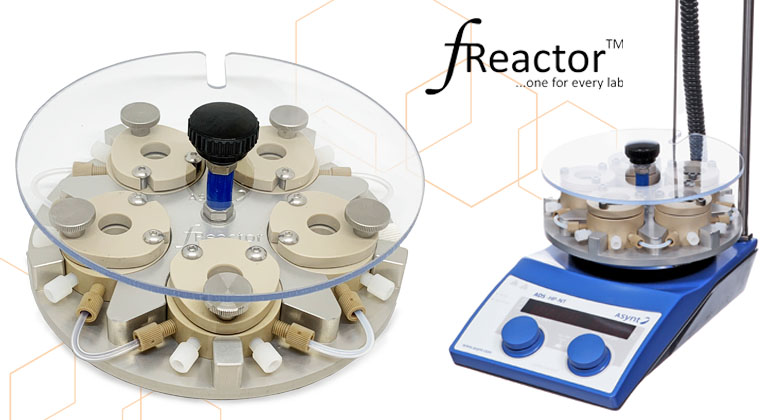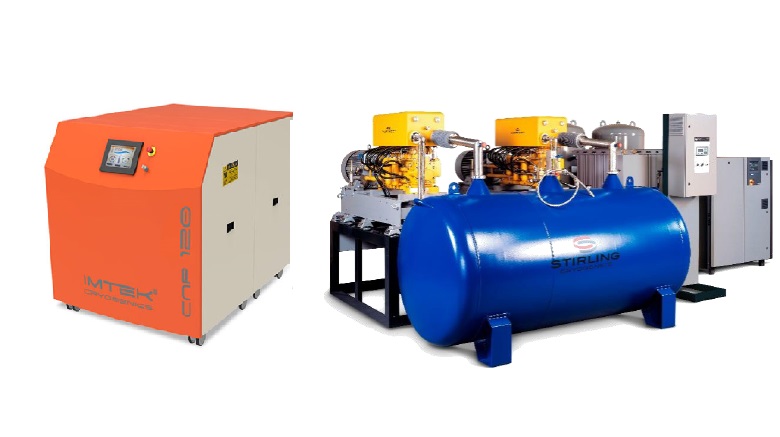Flow chemistry is a very interesting paradigm in the modern lab. It involves the induction of chemical reactions by pumping solutions through tubing at controlled flow rates. Unlike batch chemistry, where reactions occur in a standard beaker, flask or lab reactor vessel, the reaction occurs in a continuous stream–hence it’s sometimes called ‘continuous flow chemistry’. This poses an interesting question: is flow chemistry set up more of an engineering task than ordinary bench chemistry?

Before discussing the ins and outs of setting up flow chemistry apparatus, it’s worth recapping the basics of flow chemistry and why it’s become such a powerhouse from the research lab to the pilot plant and beyond.
The main advantage of flow chemistry is that chemists can control specific parameters or reactions, which is much safer than traditional methods. Flow chemistry has become a more prominent method because of its numerous benefits and applications, especially in green chemistry and the pharmaceutical industry. Flow chemistry combines aspects of engineering and chemical synthesis to create a flow reaction. The method involves two or more reactants being pushed through tubes into a single chamber at a controlled flow rate. Once the reaction takes place, the streams continue through the flowing system until it is complete and the required product has been created.
Is Flow Chemistry an Engineering Task?
The Oxford dictionary defines engineering as the branch of science and technology concerned with the design, building, and use of engines, machines, and structures. The critical question in this blog post is whether or not flow chemistry can be considered an engineering task and to what extent. Flow chemistry is more engineering-based because flow synthesis requires a more in-depth understanding and involvement than batch methods to achieve the desired end product.
Flow reactors and flow processes are based on reaction engineering1 to support specific aspects of flow chemistry. These include reactor designs, scale-ups and special devices for bulk chemistry. Additionally, engineering knowledge is used to support automation, high throughput, purification and self-optimization, amongst many other steps. With these processes in mind, flow chemistry can be considered an engineering task. In this way, a chemist can control the parameters of a reaction, which comes with a range of benefits such as better safety conditions, higher productivity, increased control & mixing, automation, telescoping, scale-up, greening and waste reduction.
Looking to the future, as chemists and chemical engineers work together, flow chemistry processes will evolve and become more sustainable2.
Flow Chemistry with Asynt
Asynt was formed to provide world-class technologies to support scientific research worldwide. Flow chemistry is a big part of Asynt, and chemists design the products we supply for chemists to ensure you receive the most suitable solutions.
fReactor® Flow Chemistry Platform
Our fReactor® was developed as an affordable platform for flow chemistry to support the synthesis of new materials. It is an easy-to-use, modular benchtop solution with the option for additional/alternative reactors and other instruments if expansion or further chemical resistance is needed.
With the fReactor, chemists can carry out a range of applications and explore continuous-flow chemistry without needing in-depth expertise. Some of the features of the equipment include a magnetic hotplate stirrer for heating and mixing, five continuous stirred tank reactors (CSTR) and accessories including PTFE cross stirrer bars. There is also an independent website managed by the scientists who designed the system – this features a wealth of information on how the fReactor works, examples of reactions carried out using fReactor, published papers, and support with information on things such as how to set-up the equipment.
For more information on the fReactor or the engineering aspects of flow chemistry, contact us today and let’s get you the answers you need. If you’d like to find out a little more about the platform before talking to us, the short video below provides all the information you need:






